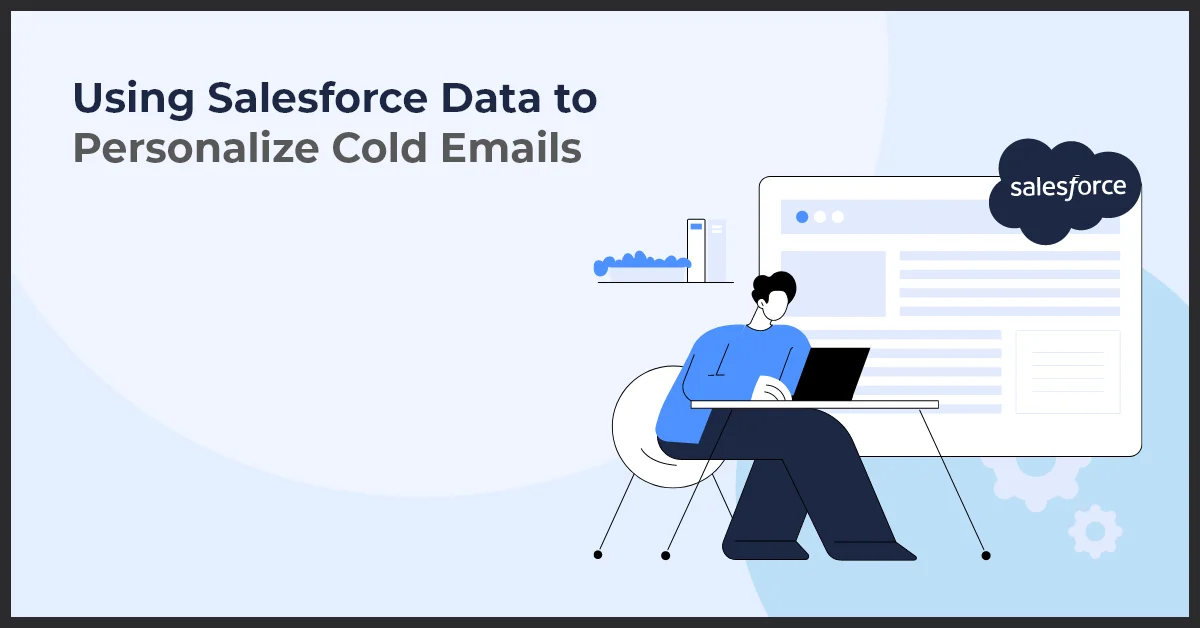Unlock New Growth with Amazon Salesforce Integration for Your Business

Published on: December 1, 2023
Updated on: February 28, 2025
1962 Views
- Salesforce
11 min read
Amazon and Salesforce are leading e-commerce, CRM, and cloud computing companies. Amazon, the world's largest online marketplace, offers many products and services, raising the question of whether does Amazon use Salesforce to manage customer relationships and enhance its operations, while Salesforce provides innovative customer relationship management solutions."
Integrating Salesforce with Amazon is crucial for businesses looking to thrive in today's competitive market. By seamlessly combining their features and functionalities, businesses can leverage the power of both platforms to accelerate sales, drive marketing efforts, harness data analytics, and enhance customer relationship management.
The integration allows businesses to streamline their sales processes, automate tasks, and gain real-time insights into their marketing campaigns. By efficiently capturing and analyzing customer data, businesses can personalize their marketing strategies to target the right audience at the right time.
Furthermore, by integrating Amazon and Salesforce, businesses can enhance customer relationship management efforts and provide exceptional customer experiences. They can track customer interactions, manage support tickets, and gain a 360-degree view of their customers across various channels, ensuring a seamless journey throughout the sales lifecycle.
The integration between Amazon and Salesforce offers tremendous opportunities for businesses to boost their sales, optimize marketing efforts, harness the power of data analytics, and deliver exceptional customer experiences. It is a must-have solution for companies seeking growth and success in the digital age.
Customer Relationship Management (CRM) with Salesforce
As a leading provider of CRM software, Salesforce has revolutionized how businesses manage their customer relationships. With a comprehensive suite of features and benefits, Salesforce's CRM solutions offer unparalleled capabilities for businesses of all sizes.
One key advantage of Salesforce's CRM software is its ability to effectively manage and enhance customer relationships. Businesses can easily track and analyze customer interactions through its robust platform, ensuring personalized and targeted communication. This not only improves customer satisfaction but also drives sales and revenue growth.
Amazon, a global e-commerce giant, is a prime example of a company that leverages Salesforce CRM solutions to its advantage. By integrating Salesforce into its operations, Amazon streamlines its customer relationship management processes. From managing customer profiles to tracking purchase history, Salesforce enables Amazon to provide a seamless and personalized customer experience.
Moreover, numerous success stories exist of companies using Salesforce CRM in conjunction with Amazon. For instance, an online retailer saw a 30% increase in customer engagement and a substantial reduction in customer churn rate after implementing Salesforce CRM. Another company experienced a significant boost in sales productivity and improved customer satisfaction by utilizing Salesforce's powerful analytics tools.
By utilizing Salesforce CRM solutions alongside Amazon, businesses can effectively manage and enhance their customer relationships, resulting in increased customer engagement, improved sales performance, and enhanced overall business success.
Important: Continuously leverage Salesforce CRM's robust analytics tools to gain insights into customer behavior and preferences, enabling personalized communication and targeted marketing strategies, ultimately driving sales growth and enhancing overall business success.
Cloud Computing with Amazon Web Services (AWS)
Cloud computing has revolutionized business operations, providing them with scalable resources, cost-effective solutions, and enhanced flexibility. One prominent player in the cloud computing industry is Amazon Web Services (AWS).
AWS is a comprehensive cloud computing platform that offers a wide range of infrastructure and services, making it a leader in the field. With worldwide data centers, AWS provides businesses with reliable and secure cloud-based solutions.
When it comes to Salesforce, the world's leading Customer Relationship Management (CRM) platform, they leverage AWS to offer powerful cloud-based software-as-a-service (SaaS) solutions. This collaboration between Amazon and Salesforce brings together the strengths of both companies, enabling businesses to achieve greater operational efficiency and success.
Utilizing Amazon and Salesforce in the cloud computing industry can yield numerous benefits. Firstly, AWS allows businesses to scale their infrastructure as needed, ensuring they have the resources to support their operations. On the other hand, Salesforce empowers businesses with top-notch CRM functionalities, enhancing their customer management capabilities.
By combining AWS and Salesforce, businesses can integrate their systems for streamlined operations. They can seamlessly sync customer data, sales information, and marketing campaigns, allowing for a more comprehensive view of their operations and enabling effective decision-making.
Furthermore, AWS provides various additional services that can be leveraged alongside Salesforce. These services include data analytics tools, mobile application development platforms, artificial intelligence (AI) and machine learning (ML) solutions, and enterprise-grade scalability and customization options.
Security is critical to cloud computing, and Amazon and Salesforce prioritize it. AWS offers robust security measures, including data encryption, secure access controls, and regular audits to ensure compliance with industry standards. Salesforce follows strict security protocols and gives businesses granular control over their data and user permissions.
In conclusion, businesses can unlock the full potential of cloud computing by harnessing the power of Amazon Web Services and Salesforce. AWS's scalable infrastructure and comprehensive services, combined with Salesforce's CRM expertise, enable organizations to achieve greater efficiency, productivity, and success in the digital landscape.
Pro Tip: Maximize the benefits of cloud computing by integrating Amazon Web Services (AWS) with Salesforce, leveraging AWS's scalability and security alongside Salesforce's CRM functionalities to optimize operations, streamline decision-making, and drive business success in the digital era.
Third-Party Apps and Extensions
Building Applications and Extensions within the Amazon Salesforce Ecosystem
Discover the thriving ecosystems of both Amazon and Salesforce that offer incredible opportunities for third-party developers. These ecosystems provide a fertile ground for creating innovative applications and extensions that can revolutionize businesses of all sizes.
Unlocking the Benefits of Third-Party Apps and Extensions
Businesses can unlock many benefits by leveraging third-party apps and extensions with Amazon and Salesforce. These include enhanced functionalities, streamlined operations, increased productivity, and seamless integrations.
Industry-Specific Solutions for Unique Business Needs
Explore the vast array of industry-specific solutions and integrations that can take your business operations to the next level. Whether in retail, healthcare, finance, or other sectors, third-party apps and extensions tailored to your needs can help optimize processes, improve customer experiences, and boost profitability.
Popular Third-Party Apps and Extensions
Here are just a few examples of popular third-party apps and extensions available for Amazon and Salesforce:
Marketplace Connector: Seamlessly integrate your Amazon store with Salesforce, allowing easy inventory management, order tracking, and customer data synchronization.
Sales Analytics Pro: Utilize powerful analytics tools to gain valuable insights into your sales and marketing performance, enabling data-driven decision-making.
Customer Support Plus: Enhance customer service capabilities by integrating Salesforce's robust CRM system with Amazon's support infrastructure, enabling efficient issue resolution and personalized support.
Email Marketing Automation: Automate your email marketing campaigns and nurture leads with targeted messaging, leveraging the combined power of Salesforce's CRM capabilities and Amazon's extensive customer data.
These are just a few examples of the vast selection of third-party apps and extensions available for Amazon and Salesforce. The possibilities are endless, and the potential for business growth is immense.
Pro Tip: When selecting third-party apps and extensions for your Amazon and Salesforce ecosystem, prioritize solutions that offer seamless integration, robust functionality, and industry-specific customization to optimize your business operations effectively.
Data Analytics for Insights and Decisions
Amazon and Salesforce offer robust data analytics capabilities for extracting valuable insights and making data-driven decisions. These features enable businesses to leverage the power of data to gain a competitive edge and drive growth.
Advanced Reporting and Data Visualization
Amazon and Salesforce provide comprehensive reporting tools that allow businesses to analyze and visualize their data easily. With customizable dashboards and interactive charts, users can clearly understand their sales, customer behavior, and other key metrics. This enables businesses to identify trends, spot opportunities, and address improvement areas.
Predictive Analytics
Amazon and Salesforce offer predictive analytics capabilities that help businesses anticipate future outcomes and make proactive decisions. These platforms can provide valuable insights and predictions by analyzing historical data and leveraging advanced algorithms. It empowers organizations to optimize their marketing strategies, forecast customer demand, and make informed business decisions.
Unlocking Insights and Making Data-Driven Decisions
Businesses can leverage Amazon and Salesforce's data analytics capabilities to gain valuable insights and make data-driven decisions. By understanding customer behavior, preferences, and patterns, organizations can tailor their strategies and offerings to effectively meet customer needs. Analyzing and drawing insights from data helps businesses optimize their operations, improve customer satisfaction, and drive revenue growth.
Real-Life Success Stories
Several organizations have successfully utilized Amazon and Salesforce's data analytics capabilities to grow their businesses. One example is a retail company that used predictive analytics to identify the products most likely to be purchased together. They increased their average order value by 20% by implementing targeted cross-selling strategies. Another example is a healthcare provider using data visualization tools to analyze patient data and optimize resource allocation. As a result, they reduced waiting times by 30% and improved patient satisfaction.
These success stories demonstrate the immense potential of Amazon and Salesforce data analytics in driving business success and growth. By leveraging these capabilities, organizations across various industries can make data-driven decisions, gain a competitive edge, and optimize their operations for maximum efficiency.
Refer to this page for more such case studies and success stories.
Pro Tip: Harness the power of Amazon and Salesforce's data analytics capabilities to uncover valuable insights, make proactive decisions, and drive business growth by understanding customer behavior, optimizing operations, and implementing targeted strategies.
Enterprise Solutions for Scalability and Customization
When it comes to providing enterprise solutions, Amazon and Salesforce have got you covered. They offer a wide range of tools and services to help businesses of all sizes manage their operations efficiently and effectively.
Enterprise Resource Planning (ERP)
One of the key enterprise solutions offered by Amazon and Salesforce is enterprise resource planning (ERP). This powerful tool allows businesses to seamlessly integrate and manage their financials, inventory, and supply chain processes. With ERP, businesses can streamline their operations and gain better control over their resources.
Supply Chain Management
In addition to ERP, Amazon and Salesforce provide robust supply chain management solutions. These solutions enable businesses to optimize their supply chain processes, from procurement to warehousing to distribution. With real-time visibility and analytics, businesses can make data-driven decisions and improve their supply chain efficiency.
Workforce Optimization
Efficient workforce management is crucial for the success of any enterprise. Amazon and Salesforce offer workforce optimization solutions that help businesses schedule and allocate resources effectively. With workforce analytics and performance tracking features, businesses can enhance productivity and maximize their workforce's potential.
Scalability and customization are vital aspects every enterprise looks for in their solutions. Amazon and Salesforce understand this need and provide flexible options for medium-sized and large enterprises.
With Amazon and Salesforce, businesses can easily scale up or down their operations according to their changing needs. Whether expanding into new markets or accommodating seasonal demands, these enterprise solutions offer the scalability businesses require to grow and expand.
Moreover, Amazon and Salesforce allow businesses to customize their solutions to their specific requirements. Businesses can tailor their enterprise solutions from branding to workflows to reporting to align with their unique processes and preferences.
By offering comprehensive and customizable solutions, Amazon and Salesforce cater to businesses seeking a one-stop solution. Whether a medium-sized enterprise or a large corporation, these enterprise solutions empower you to optimize your operations and achieve your business goals.
Key Takeaways
- Integrating Amazon and Salesforce offers businesses a comprehensive solution that accelerates sales, optimizes marketing efforts, harnesses data analytics, and enhances customer relationship management.
- Leveraging robust data analytics capabilities from Amazon and Salesforce enables businesses to unlock valuable insights and make data-driven decisions. Advanced reporting, data visualization, and predictive analytics tools help identify trends, anticipate outcomes, and optimize operations across various industries, driving efficiency, customer satisfaction, and revenue growth.
- Amazon and Salesforce provide enterprise solutions tailored for scalability and customization, essential for businesses of all sizes. From ERP to supply chain management to workforce optimization, these solutions empower businesses to manage operations efficiently, adapt to changing needs, and achieve their unique business goals.
Conclusion
Integrating Amazon and Salesforce can revolutionize businesses by enhancing their e-commerce, CRM, and cloud computing strategies. Throughout this content plan, we have explored the various solutions, tools, and capabilities of Amazon and Salesforce.
Amazon's e-commerce solutions allow businesses to reach a wide customer base and streamline operations. Salesforce's CRM tools enable businesses to effectively manage customer relationships and optimize sales and marketing efforts. Amazon Web Services (AWS) 's cloud computing services ensure scalability and customization for enterprise solutions.
Furthermore, the integration of Amazon and Salesforce allows businesses to leverage third-party apps and extensions, harness data analytics for insights and decision-making, and utilize mobile applications for on-the-go management. Both platforms' artificial intelligence (AI) and machine learning (ML) solutions enable businesses to automate processes and drive innovation.
Security and service are paramount for businesses, and Amazon and Salesforce excel in both aspects. Businesses can trust these platforms to protect their data and provide reliable service.
In conclusion, integrating Amazon and Salesforce is a game-changer for businesses. It unlocks countless possibilities for growth, efficiency, and success. We encourage you to explore the solutions, tools, and capabilities discussed in this content plan. Take your e-commerce, CRM, and cloud computing strategies to new heights with Amazon and Salesforce.
Need assistance with Amazon Salesforce Integration? Contact Growth Natives' Salesforce experts at info@growthnatives.com.
Frequently Asked Questions
Yes, Salesforce can connect to Amazon through various integration methods and tools, enabling seamless data exchange and collaboration between the two platforms.
Benefits of Amazon Connect with Salesforce:
- Streamlined customer interactions
- Enhanced customer service capabilities
- Integrated data management
- Improved overall business efficiency
Benefits of Amazon integration:
- Scalability and flexibility
- Enhanced data security
- Improved operational efficiency
- Access to a wide range of AWS services
Integration in Salesforce can be achieved through various methods such as APIs, connectors, middleware, and third-party integration tools. These tools facilitate data exchange and communication between Salesforce and other systems.
Salesforce Connect allows users to access and view external data sources directly within Salesforce, without the need for data replication. It utilizes external data sources via external objects, enabling real-time access to data from various systems.
Types of integration in Salesforce:
- Point-to-point integration
- Middleware integration
- API integration
- Data synchronization integration
Amazon integration with Salesforce typically involves API integration, allowing seamless communication between the two platforms to exchange data and perform various operations.
4 benefits of system integration:
- Enhanced data visibility and accessibility
- Improved operational efficiency
- Streamlined business processes
- Increased collaboration and communication between systems.



